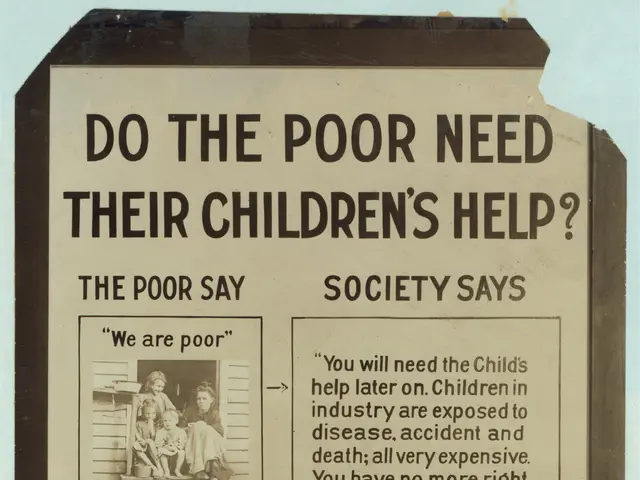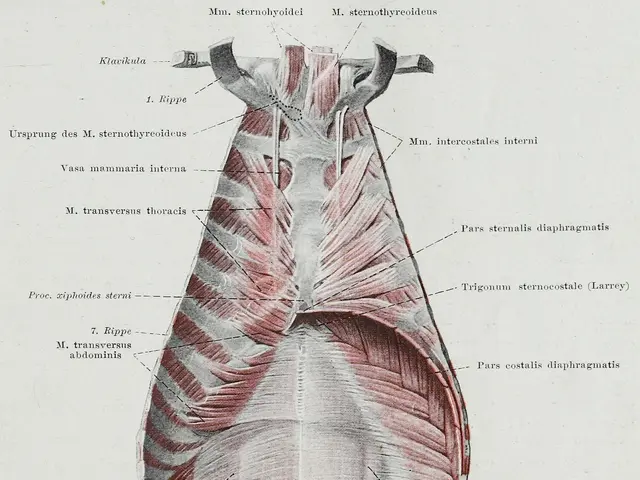Pursuing Happiness Often Leads to Misery - The Deceptive Allure of Contentment
Let's Talk About the Allure of Constant Happiness and Why It Can Backfire
In a world that seems obsessed with perfectly curated lives and unending positivity, the quest for constant happiness appears to be everyone's top goal. From who-to-follow Instagram accounts to how-to-feel-good self-help books, we get bombarded with the idea that joy should never leave us. But what if this never-ending pursuit of good vibes only lands us in a vortex of increased dissatisfaction, anxiety, and even depression? The Happiness Trap, a revolutionary concept explored in Dr. Russ Harris' book, does exactly that - it exposes the flaws in our modern cravings for eternal bliss.
The Modern Myth of Unending Happiness
We are brought up thinking that happiness is the ultimate destination in life. From our cultures and schools to the media we consume, we're sold on the notion that success + love + wealth = happiness. But like a clever disguise, this equation can mislead us.
Here's why:
- Happiness is ephemeral, not permanent.
- Emotional struggles are part of the human experience, and trying to avoid them doesn't make them disappear.
- Chasing happiness often leads to frustration as reality doesn't match our expectations.
When we believe that anything less than uninterrupted joy is a sign of a failed journey, we set ourselves up for continuous disappointment. This vicious cycle of striving, falling short, and feeling inadequate is at the heart of the happiness trap.
A Peek Inside the Happiness Trap
The term The Happiness Trap refers to a psychological phenomenon explored by Dr. Russ Harris in his best-selling book. It explains that the more we try to evade negative emotions and force ourselves to be happy, the more miserable we become.
This happens because:
- We resist natural emotions like sadness, anger, or fear.
- We compare ourselves to perfected versions of other people's lives.
- We pass judgment on ourselves for not "feeling happy enough."
By attempting to insulate ourselves from reality and our own emotions, we create a disconnect between ourselves and each other.
The Key to Escaping the Happiness Trap: Acceptance
The alternative to pursuing everlasting happiness is acceptance, not resignation, but acknowledgment. Acceptance means acknowledging that emotions can range from euphoric to uncomfortable, and that unnecessary pain results from avoiding these emotions.
The foundation of Acceptance and Commitment Therapy (ACT), which inspired The Happiness Trap book, advocates:
- Accepting what is beyond our control
- Committing to actions that bring meaning to our lives
Doing so doesn't mean quitting on joy or growth. Instead, it's about embracing discomfort to reach those things that matter, even during trying times.
The Happiness Trap in Modern Life
Are you stuck in the happiness trap if you:
- Feel anxious when you're not feeling good for no evident reason.
- Avoid challenging conversations due to the perceived threat of discomfort.
- Constantly chase new goals, only to feel empty once you reach them.
- Compare yourself to others and always come up short.
- Use distractions (social media, television, work) to numb discomfort.
While the pursuit of happiness has become an integral aspect of modern culture, these signs typify an authenticity void. You may feel as if you're "getting it right" but still feel unfulfilled.
The Price of Evading Pain
The West has cultivated a culture that prioritizes positivity and penalizes vulnerability. Mottos like "good vibes only" and "stay strong" may seem uplifting at first, but too often, they discourage genuine expression of vulnerability, pain, or fear.
Despite research that shows that suppressing emotions results in greater mental and physical strain, we continue avoiding our sadness, avoiding confronting it, and ignoring it, only to find that the pain we dodged comes back even stronger.
Choosing Meaning Over Happiness
Opting for a better approach means focusing on meaning over happiness. This means defining success by embracing the things that resonate with us, rather than insisting on feeling good all the time.
To create a more fulfilling life, ask yourself:
- What are the values I stand for?
- What kind of person do I aspire to be in adverse conditions?
- What matters more to me than insisting on feeling good right now?
Answering these questions fosters emotional strength, even amid struggles.
Strategies for Evolving and Finding Your Way Out
To break free from the trap, employ tactics rooted in ACT and emotional resilience:
1. Embrace Emotional Openness
Give your emotions space to exist without judgment. Acknowledge your feelings rather than judging them.
2. Unlink From Thoughts
Not every thought requires your full attention. Adopt mindfulness to allow thoughts to come and go like clouds in the sky, rather than acting on every thought as undeniable reality.
3. Focus on Values
Identify the pillars of your existence and take small steps toward nurturing them, even when it's difficult.
4. Develop Emotional Agility
Learn to adapt and change. Life is never static, emotions fluctuate, and resistance to change brings about its own pain, so embrace it instead.
5. Foster Authentic Connections
Instead of seeking positive impressions, form relationships based on truth and vulnerability.
The Happiness Trap Unraveled: Moving Past Permanent Joy and Embracing the Human Experience
By loosening our grip on the necessity to be happy all the time, we leave space for deeper satisfaction, serenity, and connection. Self-acceptance—not constant smiling—often paves the way for genuine happiness. It's not that you shouldn't feel good; it's that the focus shouldn't be entirely on feeling good. By experiencing life for what it truly is—unpredictable, messy, and vast—you can break free from the trap and thrive in a more authentic, meaningful life.
Wrapping Up: Joy Awaits Beyond the Pursuit of Perfect Emotions
Happiness is not a crown you wear or a medal you earn. Instead, it's a transitory emotion, not a permanent state. The real challenge lies not in sadness, but in the belief that we shouldn't feel it. Escaping the happiness trap means rejecting the fantasy of eternal joy and embracing the truth of a multidimensional emotional experience. By practicing acceptance, mindfulness, acceptance, and acting according to our values, we can build a life abundant in purpose, resilience, and inner peace.
Overcoming the happiness trap requires a shift in mindset from obsessing over feelings to cherishing the experiences that foster growth, meaning, and lasting fulfillment.
[1] Carver, C. S., Scheier, M. F.(1999) Optimism and health: explaining the optimism effect in health outcomes. Journal of Personality and Social Psychology, 77(1), 9-28.
[2] D'Silva, H. H., & Chokalingam, P. E.(2010) The impact of cynical hostility on psychological wellbeing and somatic health in older people. International Journal of Geriatric Psychiatry, 25(1), 81-90.
[3] Fredrickson, B. L. (2013) The psychological routes to positive emotion and objective well-being. Psychology and Aging, 28(4), 705-715.
[4] Sharan, M., Yadav, K., & Bhat, R. (2017) Emotional perfectionism: an overview. Child and Adolescent Psychiatry and Mental Health, 11(1), 15.
[5] Mental Health Fact Sheet. (n.d.). Retrieved April 25, 2022, from https://www.cdc.gov/mentalhealth/learn/index.htm
- People's lives are constantly influenced by the belief that happiness is the ultimate destination, a notion reinforced by various aspects of culture, education, and media.
- The quest for unending happiness, characterized by avoiding emotional struggles and chasing joy, can lead to increased dissatisfaction, anxiety, and even depression.
- A better approach to life, as opposed to constantly striving for happiness, is acceptance, which involves acknowledging the range of emotions one can experience, from euphoric to uncomfortable.
- Resisting emotions, comparing oneself to others, passing judgment on oneself, and ignoring pain create a disconnect between oneself and others, perpetuating the happiness trap.
- Prioritizing meaning over happiness means focusing on defined values, such as embracing personal growth, fostering authentic connections, and committing to actions that bring purpose to life.
- Embracing the human experience, instead of chasing perfect emotions, can lead to a more fulfilling life characterized by emotional strength, inner peace, and resilience.








